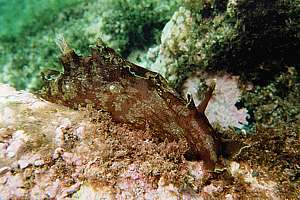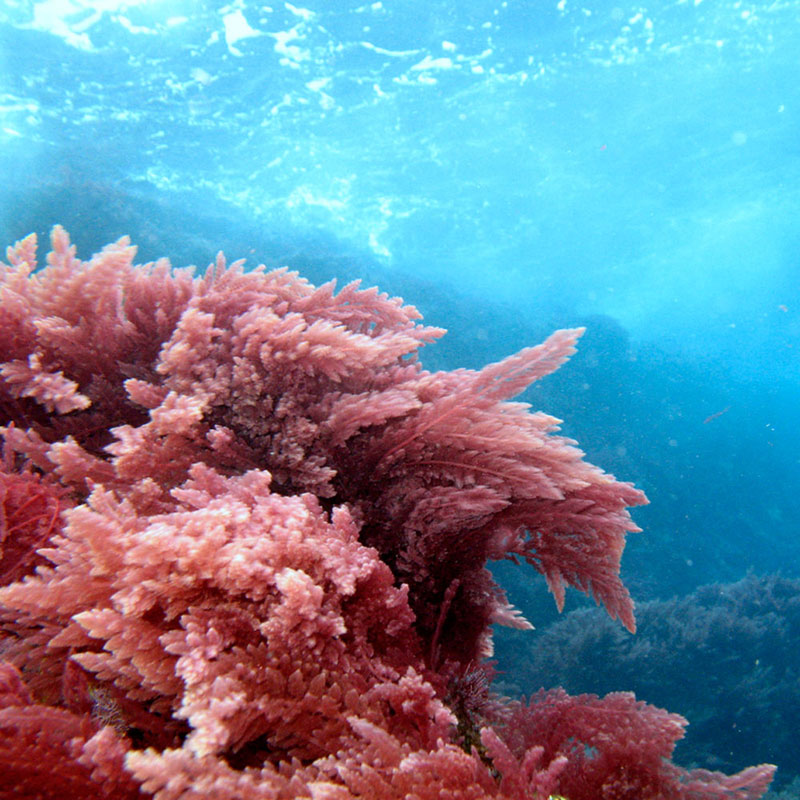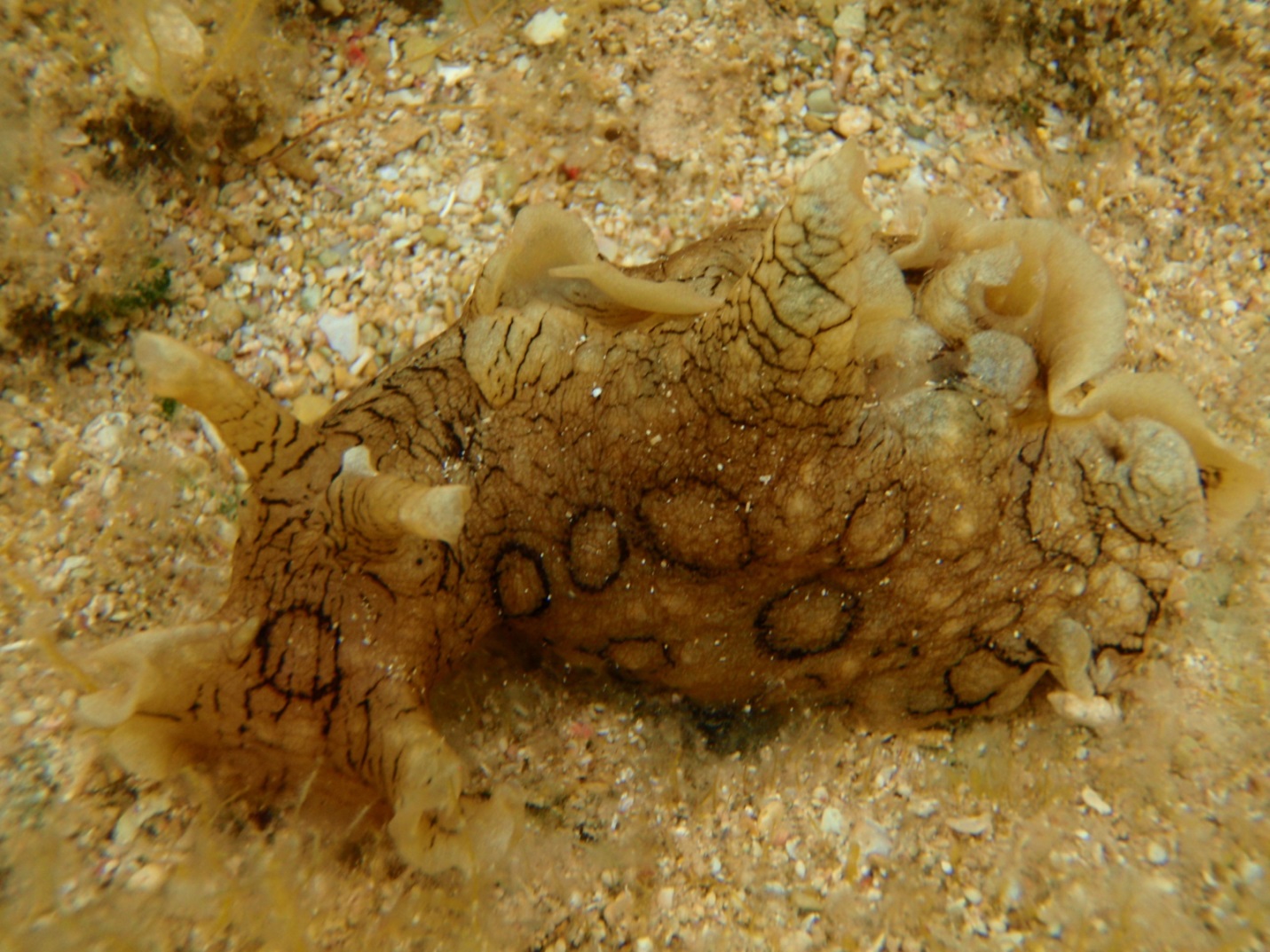Habitat and Geography
Navigation Back to Classification - Home - Continue to Form / Function
Aplysia Dactylomela, better known as the sea hare, finds itself
in environments that are warm and tropical climates that are near
the Atlantic, similar to the
Sea Cucumber and some species of
Dolphins. Scientists first spotted the sea hare in the
Mediterranean Sea. As of today, it is now found in sandy, rocky
areas with thick amounts of algae. This is found in many regions of
the world. Some common places around the world that the sea hare is
found is in the Red Sea, Greece, Turkey, Malta, and the Eastern
shores off the Sicilian borders. It also makes its homes in the
rocky bays off the Gulf of Tornonto.
Source:
http://www.seafriends.org.nz/indepth/sea_hares.htm

Based
off of the other articles, it is logical to conclude that the sea
hares have to live in environments with sufficient amounts of red
algae, which makes up a bulk of its diet, giving its ink its dark
purple color (Crocetta, Colamonaco 2010). It is obvious that the sea
hares tend to be around during the seasons where the algae is in
bulk and are in the greatest quantities. Temperate and subtropical
environments where algae grows a majority of the year, if not all of
it, are where a significant amount of test are taken. This gives the
scientists a wide variety of timed experiments to perform (Plaut,
Borut, Spira 1998). Source:http://www.cellnique.com/cellnique/skin-care-expert/cellnique-ingredient-glossary/r/red-algae-extract.html
http://www.cellnique.com/cellnique/skin-care-expert/cellnique-ingredient-glossary/r/red-algae-extract.html

Back to Classification - Home - Back to Top - Continue to Form / Function
